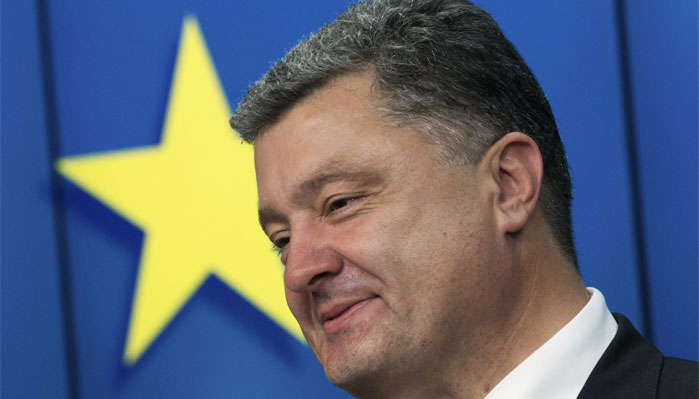Ukraine's President Petro Poroshenko smiles as he speaks during a news conference at the EU Council in Brussels, in this June 27, 2014 file photo
Reuters/Brussels
The European Union reached outline agreement on Friday to impose the first economic sanctions on Russia over its behaviour in Ukraine but scaled back their scope to exclude technology for the crucial gas sector.
The sanctions on access to capital markets, arms and hi-tech goods are also likely to apply only to future contracts, leaving France free to go ahead with the controversial delivery of Mistral helicopter carriers being built for Russia.
After months of hesitation, the 28-nation EU toughened its stance towards Moscow after last week's downing of a Malaysian airliner, killing 298 people, in an area of eastern Ukraine held by Russian-backed separatists.
But the narrowing of the proposed measures highlighted the difficulty of agreeing to tough sanctions among countries which have widely different economic interests and rely to varying degrees on Russian gas.
After a discussion that lasted all day Thursday and part of Friday, ambassadors asked the executive European Commission to draw up a legal text setting out economic sanctions for possible agreement as early as next week.
Key measures included closing EU capital markets to state-owned Russian banks, an embargo on arms sales to Moscow and restrictions on the supply of dual-use and energy technologies. They would not affect current supplies of oil, gas and other commodities from Russia.
European Council President Herman Van Rompuy wrote to EU leaders saying the discussion among ambassadors had led to "an emerging consensus on some key principles."
One was that "the measures in the field of sensitive technologies will only affect the oil sector in view of the need to preserve EU energy security," the letter said, according to an EU source.
The Commission had proposed restricting equipment for deep-sea drilling, shale oil and Arctic energy exploration.

